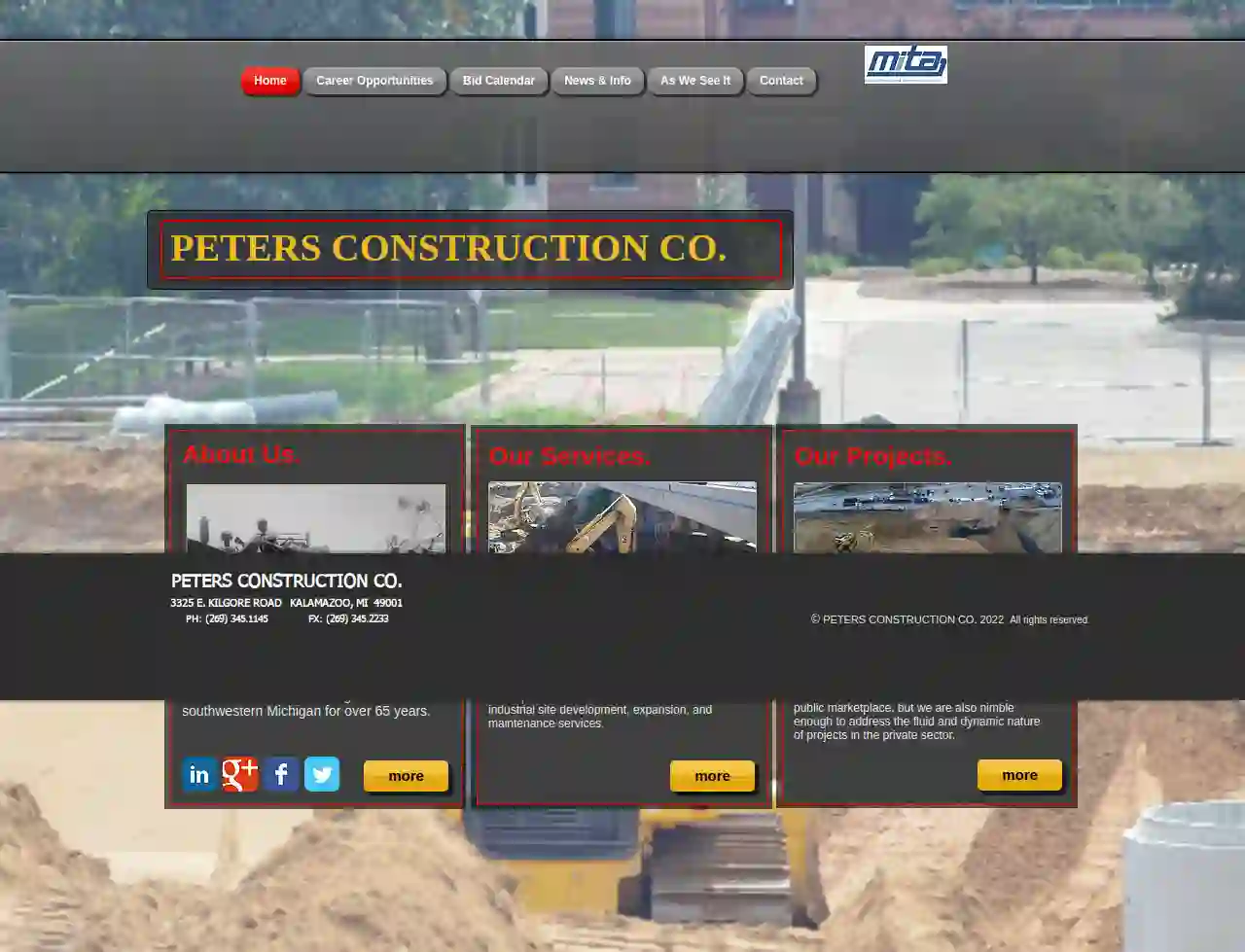Dirt Contractors Kalamazoo
Find top Dirt Hauling in Kalamazoo
Get 3 FREE Dirt Contractors quotes for your project today! Compare profiles, reviews, accreditations, portfolio, etc... and choose the best service.

Alamo Dirt Works LLC
55 reviews7923 Owen Dr., Kalamazoo, 49009, USAbout Alamo Dirt Works We are a local excavating business serving the Alamo, Otsego, Plainwell, and surrounding areas. We have years of experience and take pride in our work, standing behind it. We specialize in septic tank repair and installation, drain field repair and installation, site work, driveways, yard leveling, land clearing, demolition, new basements, and more.
- Services
- Why Us?
- Gallery
Get Quote
Vander Veen Excavating
3.97 reviews6864 Hart Drive, Kalamazoo, 49009, USVander Veen Excavating: Your Trusted Partner for Excavation Services in Kalamazoo, MI Vander Veen Excavating is a well-established excavation contractor based in Kalamazoo, Michigan. With years of experience in the industry, we provide a comprehensive range of excavation services to meet the diverse needs of our clients. Our team of skilled professionals is dedicated to delivering high-quality workmanship, adhering to strict safety standards, and exceeding customer expectations. We understand that every project is unique, and we take a personalized approach to ensure that your specific requirements are met. From site preparation and grading to trenching and utility installation, we handle all aspects of your excavation project with precision and efficiency. At Vander Veen Excavating, we are committed to building lasting relationships with our clients. We believe in open communication, transparency, and providing exceptional customer service. Our goal is to be your trusted partner for all your excavation needs.
- Services
- Why Us?
- Our Team
Get Quote
Peters Construction Co
4.76 reviewsKalamazoo, US- Services
- Why Us?
Get Quote
Over 3,943+ Excavation Contractors in our network
Our excavation contractors operate in Kalamazoo & surroundings!
ExcavationHQ has curated and vetted the Best Excavation Businesses arround Kalamazoo. Find the most reliable pro today.
Frequently Asked Questions About Dirt Contractors
- Dirt Type: Clay soils tend to settle slower than sandy soils due to their smaller particle size and higher water retention.
- Compaction: Proper compaction helps accelerate the settling process by reducing air pockets and increasing soil density.
- Moisture Content: Excessive moisture can prolong settling time, as the water needs to evaporate or drain away.
- Weather Conditions: Warm, dry weather promotes faster settling compared to cold or wet conditions.
- Spring and Fall: Generally considered the optimal seasons in many regions, as the weather is typically mild and the ground is workable.
- Summer: Can be suitable if the weather isn't excessively hot and dry, but ensure adequate watering to prevent soil from drying out.
- Winter: Often challenging due to frozen ground, snow, and potential for delays. However, some contractors may be available for deliveries if conditions permit.
- Designated Disposal Facilities: Contact your local waste management authority or search online for designated dirt and debris disposal facilities in your area. They accept various types of soil and construction materials.
- Recycling Centers: Some recycling centers accept clean fill dirt, concrete, or brick for reuse in other construction projects.
- Donation: If the dirt is clean and suitable for gardening or landscaping, consider donating it to community gardens, schools, or neighbors with landscaping projects.
- Environmental Site Assessment: Hire a qualified environmental consultant to conduct a Phase I Environmental Site Assessment (ESA). This involves reviewing historical records, conducting site reconnaissance, and interviewing relevant parties to identify potential environmental concerns.
- Soil Sampling and Testing: If the ESA indicates potential contamination, soil samples will be collected and analyzed in a laboratory for the presence of specific contaminants, such as heavy metals, pesticides, or petroleum products.
How long does it take for dirt to settle after delivery?
What is the best time of year to have dirt delivered?
What is the best way to dispose of excess dirt?
How do I know if the dirt I need is contaminated?
How long does it take for dirt to settle after delivery?
- Dirt Type: Clay soils tend to settle slower than sandy soils due to their smaller particle size and higher water retention.
- Compaction: Proper compaction helps accelerate the settling process by reducing air pockets and increasing soil density.
- Moisture Content: Excessive moisture can prolong settling time, as the water needs to evaporate or drain away.
- Weather Conditions: Warm, dry weather promotes faster settling compared to cold or wet conditions.
What is the best time of year to have dirt delivered?
- Spring and Fall: Generally considered the optimal seasons in many regions, as the weather is typically mild and the ground is workable.
- Summer: Can be suitable if the weather isn't excessively hot and dry, but ensure adequate watering to prevent soil from drying out.
- Winter: Often challenging due to frozen ground, snow, and potential for delays. However, some contractors may be available for deliveries if conditions permit.
What is the best way to dispose of excess dirt?
- Designated Disposal Facilities: Contact your local waste management authority or search online for designated dirt and debris disposal facilities in your area. They accept various types of soil and construction materials.
- Recycling Centers: Some recycling centers accept clean fill dirt, concrete, or brick for reuse in other construction projects.
- Donation: If the dirt is clean and suitable for gardening or landscaping, consider donating it to community gardens, schools, or neighbors with landscaping projects.
How do I know if the dirt I need is contaminated?
- Environmental Site Assessment: Hire a qualified environmental consultant to conduct a Phase I Environmental Site Assessment (ESA). This involves reviewing historical records, conducting site reconnaissance, and interviewing relevant parties to identify potential environmental concerns.
- Soil Sampling and Testing: If the ESA indicates potential contamination, soil samples will be collected and analyzed in a laboratory for the presence of specific contaminants, such as heavy metals, pesticides, or petroleum products.